Road rules in NT
Giving way
To give way means to slow down or stop. You must wait until it's safe to proceed.
You must give way at all of the following:
- at give way signs
- at stop signs
- turning across the path of an oncoming vehicle at an intersection
- turning from a terminating road onto the ongoing road at a T-intersection
- if you're turning at an intersection, you must also give way to pedestrians crossing the road you are entering.
Below are rules for:
- stop signs and lines
- obeying and giving way to police, fire and emergency services
- intersections and turning
- priority for buses
- T-intersections
- when there are no signs.
For more information, read the Traffic Regulations 1999.
Stop signs and stop lines
When you come to a stop sign, you must stop completely before reaching the line, and as close as possible to the line.
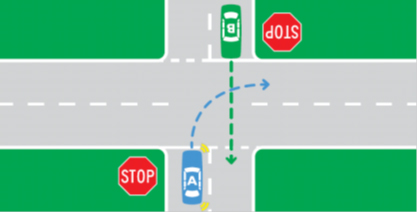
In the diagram above, car A must give way to car B
Giving way to police, fire and emergency services
When you hear a siren or see the flashing blue or red lights of an emergency vehicle, you must give way or pull over to the left until the emergency vehicle passes.
You must always obey any direction you are given from a police officer.
Prepare to stop if you see any of the following:
- the police
- a police vehicle
- red/blue flashing lights
- the police using signs.
If you're pursued by a police vehicle, you must immediately pull over and stop.
Intersections, give way and turning
You must give way to any vehicles in or approaching the intersection. Don't get caught in the middle of the intersection when the lights change.
You must stay on the approach side of the intersection until you see a space in your lane on the other side of the intersection that is big enough for your vehicle.
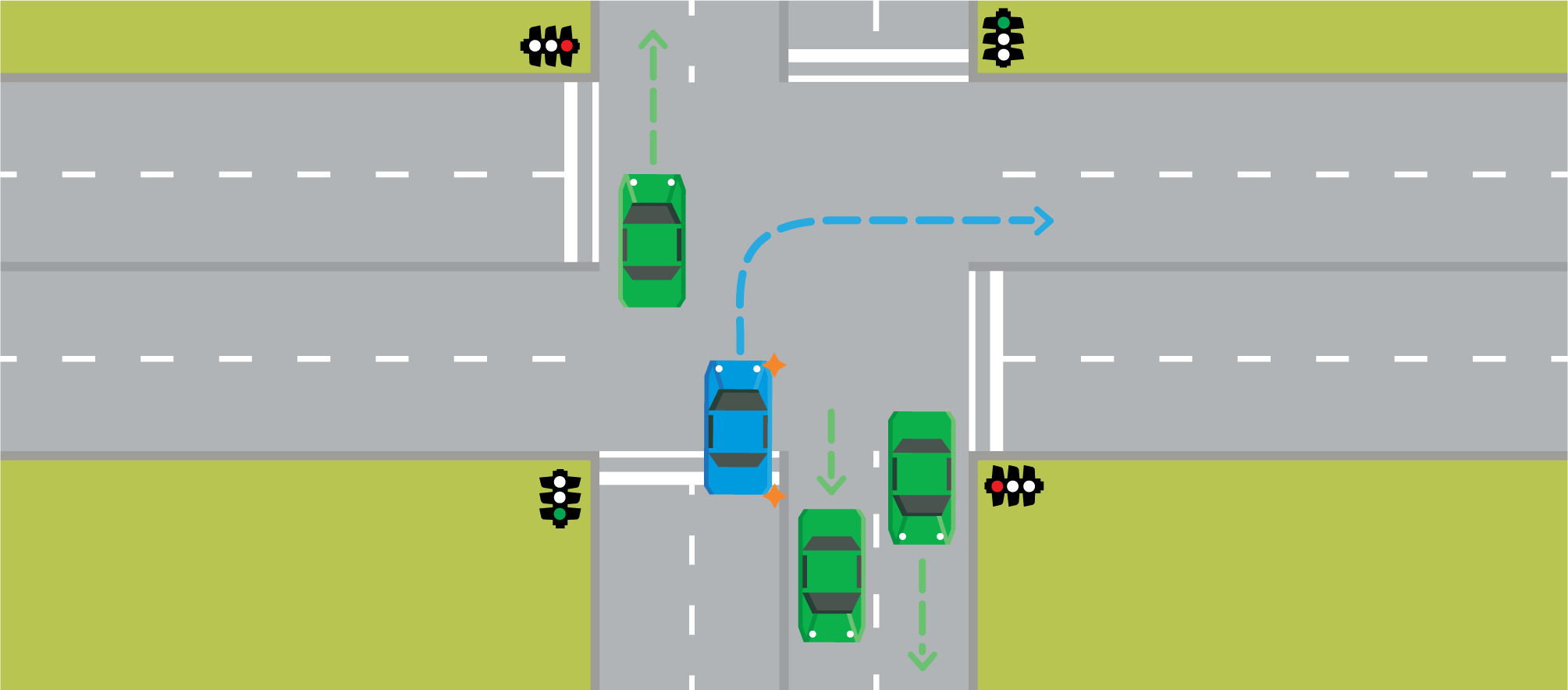
Priority for buses
You must give way to buses in all of the following situations:
- in speed zones of 70 kilometres per hour or below
- if the bus displays a give way to buses sign
- if the indicator lights of the bus are operating
- if the bus is about to enter or proceed in the lane or line of traffic.
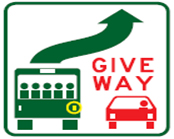
The driver of the bus is allowed to enter the lane or line of traffic only if it's safe to do so.
Some traffic lights may have a ‘B’ signal to control traffic around buses at intersections, read more about 'B' signals on traffic lights.
T-intersections
When you approach a T-intersection, you must give way to vehicles travelling on the road that continues unless otherwise signposted.
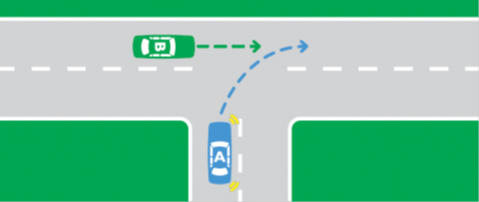
In the diagram above, car A must give way to car B.
If you approach a T-intersection where the continuing road goes around a corner, you must signal to leave the continuing road.
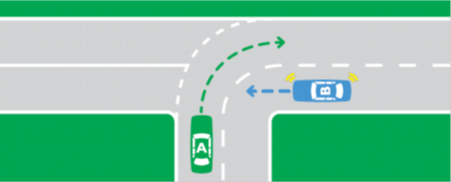
In the diagram above, car B must give way to car A.
Give way rules where there are no signs
If there are no signs, you must obey give way or stop lines on the road.
When turning at an intersection, you must give way to all of the following:
- oncoming vehicles going straight ahead
- oncoming vehicles turning left
- any vehicle approaching on your right.
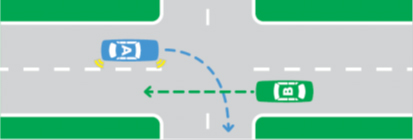
In the diagram above, car A must give way to car B.

In the diagram above, car A must give way to car B.
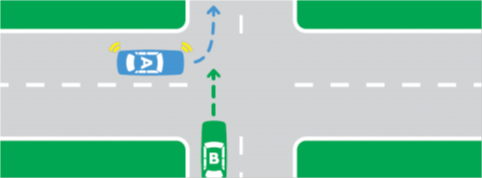
In the diagram above, car A must give way to car B.
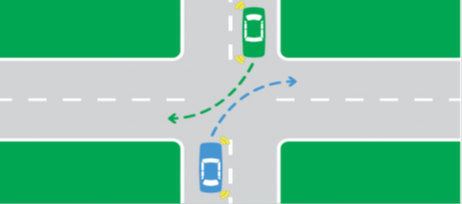
If you and an oncoming vehicle are turning right at an intersection, both cars should pass in front of each other.
Print all pages in this section
Give feedback about this page.
Share this page:
URL copied!